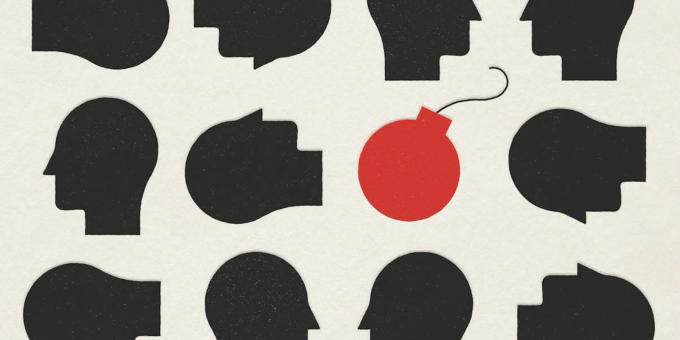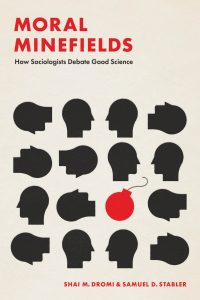
Better Together, or What Sociology’s History of Moral Debate Can Teach You
Few academic disciplines are as contentious as sociology. Heated disputes over ethical questions are common, and range from ethnographers’ alleged criminal complicity with their research subjects to ideological motivations for research on same-sex parenting and the appropriate ways to address transgender identity in sociological work. And as any sociologist who has been around long enough knows, the fierce nature of sociological debates is not unique to our present day. From denunciations of Social Darwinism in the early 20th century to clashes over Modernization Theory and Functionalism in mid-century, fraught debate is a routine feature of sociological inquiry.
 Our new book, Moral Minefields: How Sociologists Debate Good Science, provides a big-tent framework for analyzing how such debates shape sociological research trajectories and exploring their scholarly repercussions. The book examines the moral frameworks researchers employ as they judge scholarship and as they devise strategies to address moral criticism. While sociologists often proclaim commitments to value neutrality, we demonstrate that debates about good research in sociology are fundamentally about morality. That is, they are rooted in scholars’ underlying understandings of what constitutes valuable social science. Such debates include arguments about the validity of certain facts or methods, but underlying those arguments are moral assumptions about whether those facts or methods are good or bad.
Our new book, Moral Minefields: How Sociologists Debate Good Science, provides a big-tent framework for analyzing how such debates shape sociological research trajectories and exploring their scholarly repercussions. The book examines the moral frameworks researchers employ as they judge scholarship and as they devise strategies to address moral criticism. While sociologists often proclaim commitments to value neutrality, we demonstrate that debates about good research in sociology are fundamentally about morality. That is, they are rooted in scholars’ underlying understandings of what constitutes valuable social science. Such debates include arguments about the validity of certain facts or methods, but underlying those arguments are moral assumptions about whether those facts or methods are good or bad.
Our approach contrasts with recent calls to orient the discipline toward one set of specific moral aims. For example, Christian Smith has argued that sociology should promote human flourishing, whereas Mary Romero and Aldon Morris have argued that it should strive toward social justice. Our goal in Moral Minefields is not to advocate for one particular moral end, but to identify and describe the various moral frames that sociologists already employ. The book calls for open acknowledgment of the different—and indeed, competing—moral goods that different programs of research provide. We identify 7 main perspectives, or moral repertoires:
- The Efficiency Repertoire evaluates research and researchers based on productivity, objectivity, and expertise. It particularly values methodological rigor.
- The Civic Repertoire focuses on research contributions to collective interest, equality, and social change, both through research outputs and through activism and policy impact.
- The Anchored Repertoire highlights community, loyalty to research subjects and to local traditions, extolling immersive research, and representing marginalized voices.
- The Creativity Repertoire stresses originality, innovation, and even heterodoxy, valuing theoretical and methodological novelty.
- The Charismatic Repertoire focuses on reputation and deference to academic stars and influential thinkers.
- The Marketability Repertoire values funding, public attention, and competitiveness, and it cherishes research with wide appeal.
- The Network Repertoire underscores collaboration, interdisciplinarity, and boundary crossing. This repertoire commends global, interdisciplinary, and cross-cultural research.
Moral Minefields’ overarching argument is that sociology thrives by providing scholars with a variety of ways to define worth and success. Rather than moral uniformity or conformity, the book celebrates value pluralism. And, in doing so, it provides a roadmap for the pragmatic sociological study of knowledge production. Moral diversity need not devolve into moral relativism, but it must recognize that in scholarly research fields (much like everyday life) what is morally justifiable is always up for debate.
Shai M. Dromi is in the Department of Sociology at Harvard University. He is the author of Above the Fray: The Red Cross and the Making of the Humanitarian NGO Sector. Sam Stabler is in the Department of Sociology at Hunter College, CUNY. He studies how religious ideas shape the built environment and the moral dimensions of sociological debate.

Comments